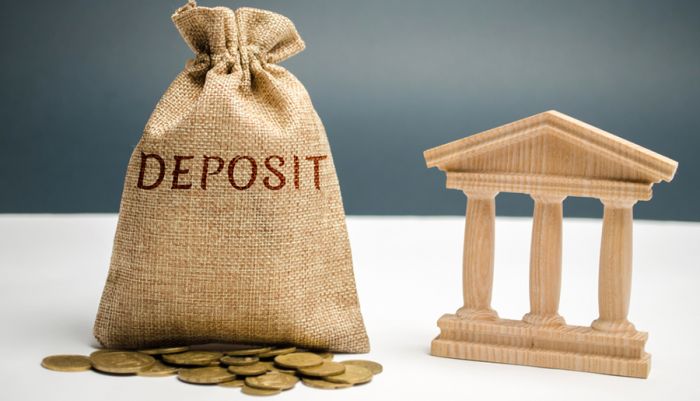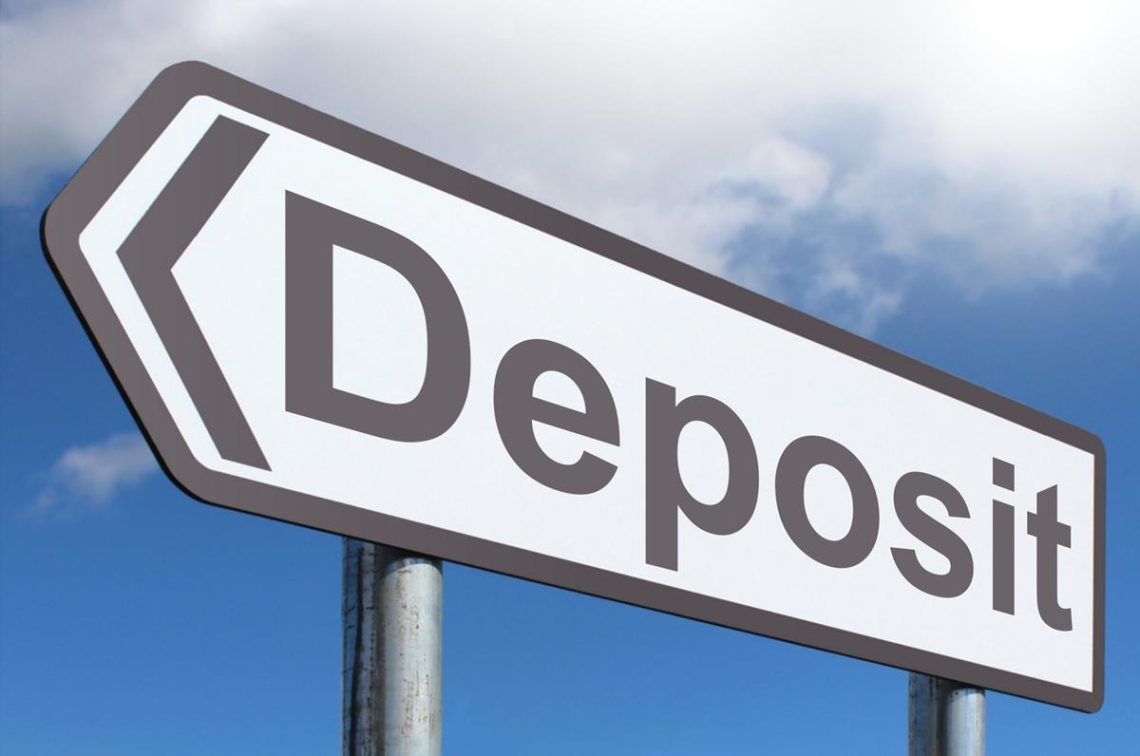Unraveling the Dynamics of Deposits: Beyond Banking
In the financial realm, a deposit is more than just a transaction; it’s a multifaceted concept that transcends traditional banking. Let’s delve into the intricacies of how deposits work, exploring the diverse facets of this financial term and its implications in various scenarios.

The Essence of a Deposit:
At its core, a deposit is the act of transferring money to another party, a financial exchange that occurs daily, especially in the context of banking. When you deposit funds into a checking account at a bank or credit union, you’re essentially entrusting your money to a financial institution. This act opens the gateway to a myriad of possibilities – from withdrawing funds and making purchases to seamless transfers between accounts.
To initiate certain banking relationships, a “minimum deposit” is often required, serving as a prerequisite to open a new account. Notably, depositing money into a checking account categorizes it as a transaction deposit, ensuring immediate availability and liquidity for hassle-free withdrawals.
Deposits as Security or Collateral:
Another facet of deposits involves using a portion of funds as security or collateral. In certain transactions, a percentage of the total amount is paid upfront as a gesture of good faith. For instance, brokerage firms may mandate an initial margin deposit from traders entering into a new futures contract, securing the transaction.
Earning Interest through Deposits:
When funds are deposited into certain bank accounts, the possibility of earning interest arises. This means that, at regular intervals, a percentage of the total account balance is added to the existing sum. The terms of interest accumulation vary, with rates and frequencies contingent on the specific bank’s policies.
Types of Deposits:
Understanding deposits necessitates distinguishing between two main types: demand and time.
Demand Deposit: This is the conventional bank and savings account where funds can be withdrawn without prior notice. It provides flexibility and immediate access to deposited funds.
Time Deposits: These deposits have fixed terms and typically offer a fixed interest rate. Examples include certificates of deposit (CDs), which provide higher interest rates than regular savings accounts. However, time deposit accounts mandate that funds remain untouched for a specified period.
Real-Life Examples of Deposits:
Deposits play a pivotal role in various financial transactions, especially in significant purchases like real estate or vehicles. Sellers often require deposits as a commitment to payment plans, and a home’s down payment is essentially a deposit securing the property.
In rental scenarios, deposits, commonly known as security deposits, are commonplace. Whether renting an apartment, car, or other items, this financial security covers potential damages incurred during the rental period. A refund, either partial or total, is typically processed upon verification of the rented property’s condition.
Frequently Asked Questions:
To shed more light on the nuances of deposits, let’s address some common queries:
Interest on Deposits: Not all deposits earn interest; it depends on the terms of the account. While many checking accounts don’t provide interest, savings accounts and CDs often do.
Depositing Checks from Another Bank: Yes, you can deposit a check from one bank into another. Most banks accept various forms of deposits, including cash, checks, money orders, and cashier’s checks.
Refund on Deposits for Goods or Services: Whether you get a deposit back for goods or services depends on the agreement. In many rental agreements, a security deposit is held to cover potential damages, with a refund contingent on the condition of the rented item or space.
In the financial landscape, a deposit serves as more than a mere monetary transaction; it’s a foundational element that underpins various financial interactions. Whether securing goods or services, earning interest, or initiating long-term commitments, understanding the dynamics of deposits is crucial for navigating the intricate world of finance. As we continue to evolve in the digital age, deposits, in their myriad forms, will remain a cornerstone of financial transactions, shaping the way we engage with our finances and the broader economic landscape.
Technological Advancements in Banking Deposits:
The landscape of deposits is evolving with advancements in technology, particularly in the banking sector. Online banking platforms and mobile applications have redefined the way individuals interact with their accounts. Digital deposits, where users can electronically transfer funds, have become commonplace. This convenience not only streamlines the deposit process but also enhances accessibility for users worldwide.
Moreover, the emergence of financial technologies (Fintech) has introduced innovative solutions, such as remote check deposits using mobile cameras. This feature allows users to deposit checks by capturing images, eliminating the need to visit a physical bank branch. The integration of Artificial Intelligence (AI) in banking systems has also enhanced security measures, providing a robust framework for digital transactions, including deposits.
Cryptocurrency and Deposits:
In the realm of finance, the rise of cryptocurrencies has introduced a novel perspective on deposits. Cryptocurrencies like Bitcoin operate on decentralized blockchain technology, enabling secure and transparent transactions. While not conforming to the traditional definition of deposits, storing cryptocurrencies in digital wallets can be likened to a form of digital deposit. Users can securely store their digital assets, and the blockchain ensures transparency and tamper-proof record-keeping.
The Future of Deposits: Decentralized Finance (DeFi):
Looking ahead, the concept of decentralized finance (DeFi) is gaining momentum. DeFi leverages blockchain and smart contract technology to recreate traditional financial services in a decentralized manner. This includes decentralized lending and borrowing platforms, where users can deposit digital assets as collateral to borrow or lend funds directly, without the need for intermediaries.
The potential impact of DeFi on deposits is substantial. It introduces a paradigm shift where users have more control over their assets, and transactions occur without the reliance on traditional banking institutions. However, the nascent nature of DeFi also brings forth challenges, including regulatory considerations and the need for robust security frameworks.
Addressing Common Deposit Misconceptions:
Every Deposit Earns Interest: While many savings accounts and CDs accrue interest, not all deposits yield interest. Checking accounts, for example, typically do not provide interest-bearing benefits.
Deposit Clearing with Checks: Depositing a check from another bank might entail a holding period as the new bank ensures the check’s clearance. This precautionary measure ensures the legitimacy of the deposited funds.
Refunds on Deposits: The refund on deposits for goods or services is contingent on the agreement. In certain scenarios, a deposit may act as a partial payment towards the overall balance due, while in others, it may be fully refundable upon meeting specific conditions.
The Ever-Evolving Deposit Landscape:
As we navigate the intricate world of deposits, it’s crucial to acknowledge the dynamic nature of the financial landscape. Technological innovations continue to redefine how we deposit and manage our funds, offering unprecedented convenience and security. The advent of DeFi introduces exciting possibilities for reshaping the very essence of deposits, moving towards a more decentralized and inclusive financial ecosystem.
deposits, once a straightforward financial transaction, now encompass a spectrum of possibilities influenced by technological breakthroughs and emerging financial paradigms. Understanding these nuances empowers individuals to make informed financial decisions, ensuring that deposits continue to serve as a cornerstone in the ever-evolving world of finance.






